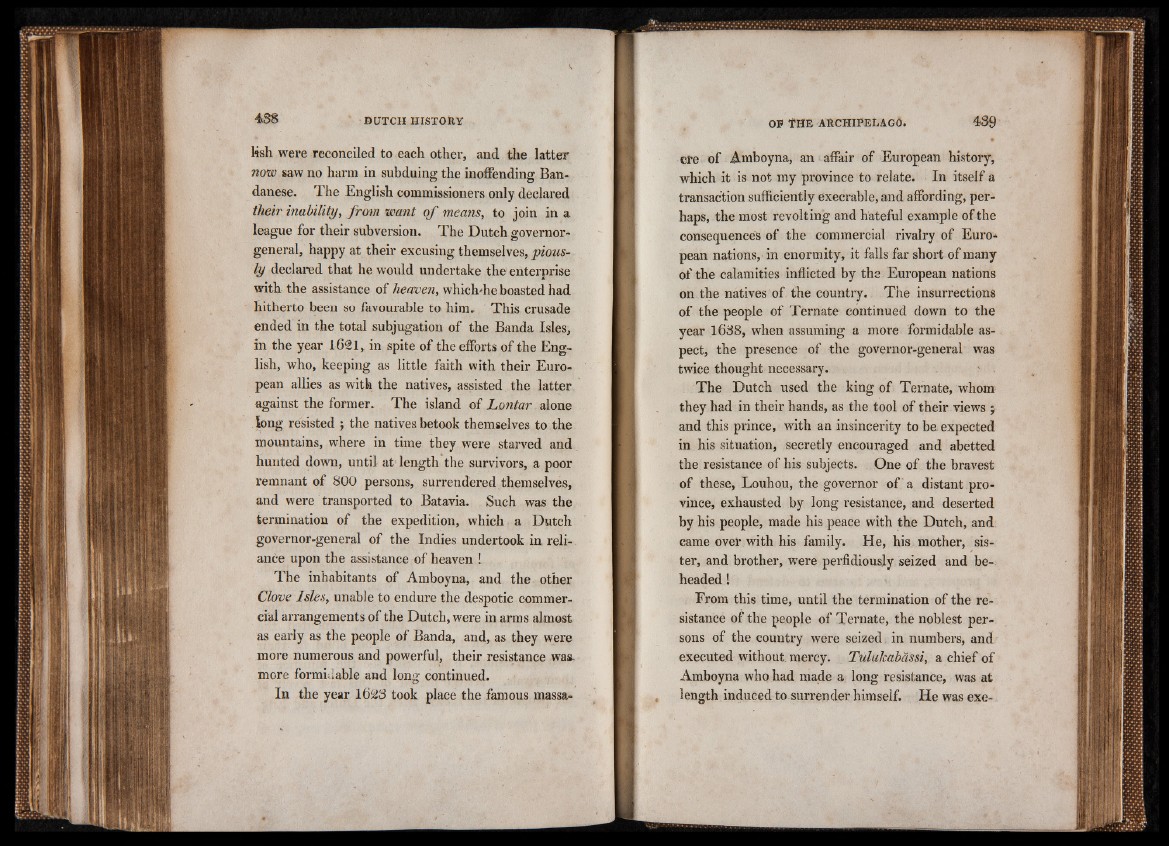
lish were reconciled to each other, and the latter
now saw no harm in subduing the inoffending Ban-
danese. The English commissioners only declared
their inability, from want of means, to join in a
league for their subversion. The Dutch governor-
general, happy at their excusing themselves, piously
declared that he would undertake the enterprise
with the assistance of heaven, which^he boasted had
hitherto been so favourable to him. This crusade
ended in the total subjugation of the Banda Isles,
in the year 1-621, in spite of the efforts of the English,
who, keeping as little faith with their European
allies as with the natives, assisted the latter
against the former. The island of Lontar alone
Song resisted ; the natives betook themselves to the
mountains, where in time they were starved and
hunted down, until at* length the survivors, a poor
remnant of 800 persons, surrendered themselves,
and were transported to Batavia. Such was the
termination of the expedition, which a Dutch
governor-general of the Indies undertook in reliance
upon the assistance of heaven 1
The inhabitants of Amboyna, and the other
Clove Isles, unable to endure the despotic commercial
arrangements of the Dutch, were in arms almost
as early as the people of Banda, and, as they were
more numerous and powerful, their resistance was.
more formidable and long continued.
In the year 1623 took place the famous massaere
of Amboyna, an affair of European history^
which it is not my province to relate. In itself a
transaction sufficiently execrable, and affording, perhaps,
the most revolting and hateful example of the
consequence^ of the commercial rivalry of European
nations, in enormity, it falls far short of many
of the calamities inflicted by the European nations
on the natives of the country. The insurrections
of the people of Ternate continued down to the
year 1638, when assuming a more formidable aspect,
the presence of the governor-general was
twice thought necessary.
The Dutch used the king of Ternate, whom
they had in their hands, as the tool of their views j
and this prince, with an insincerity to be expected
in his situation, secretly encouraged and abetted
the resistance of his subjects. One of the bravest
of these, Louhou, the governor of 'a distant province,
exhausted by long resistance, and deserted
by his people, made his peace with the Dutch, and
came over with his family. He, his mother, sister,
and brother, were perfidiously seized and beheaded
!
From this time, until the termination of the resistance
of the people of Ternate, the noblest persons
of the country were seized in numbers, and
executed without mercy. Tulukabdssi, a chief of
Amboyna who had made a long resistance, was at
length induced to surrender himself. Hewasexe